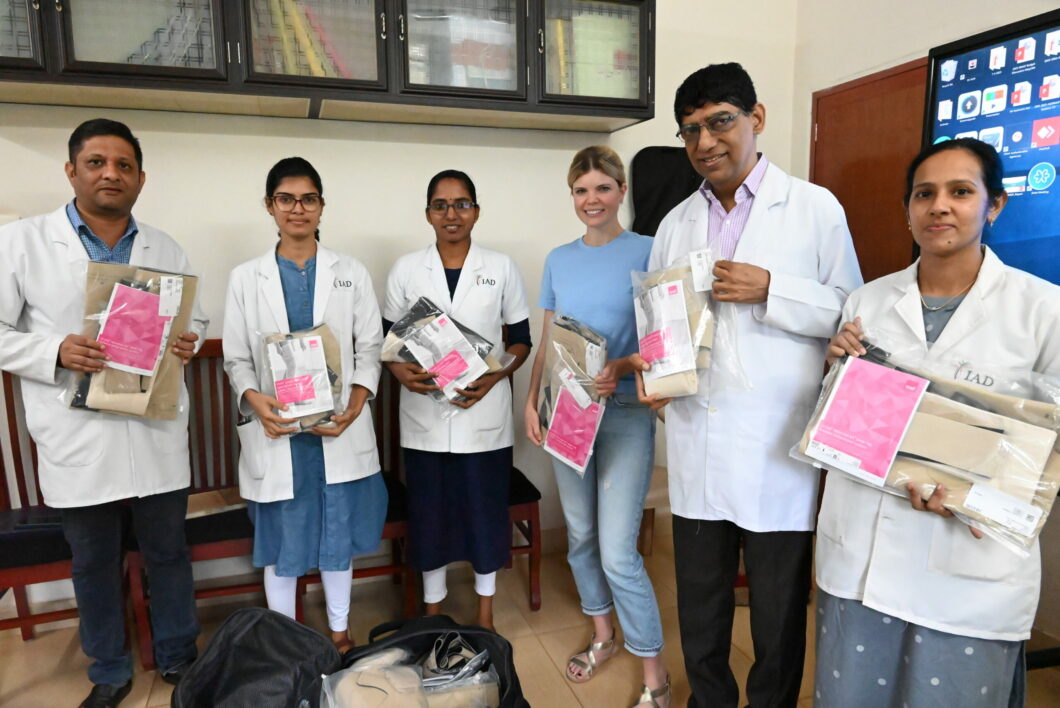
medi for help visits the IAD – Help for people with lymphatic diseases in India
Daniela Weihermüller from medi for help visited the Institute of Applied Dermatology (IAD) in July 2023 to find out more about the local situation. The Indian institute provides free treatment for very severe cases of lymphatic conditions. medi for help has been supporting the IAD since 2021 in line with our principle of “helping people to help themselves”.
The clinic in Kasaragod on the south-west coast of India specialises in treating patients with lymphoedema and lymphatic filariasis.1 This is caused by parasitic threadworms (“filariae”) that attack the lymphatic system and connective tissue. Although around 120 million people worldwide are affected by lymphatic filariasis, it is one of the give most “Neglected Tropical Diseases”, accounting for around 90 per cent of these conditions.2
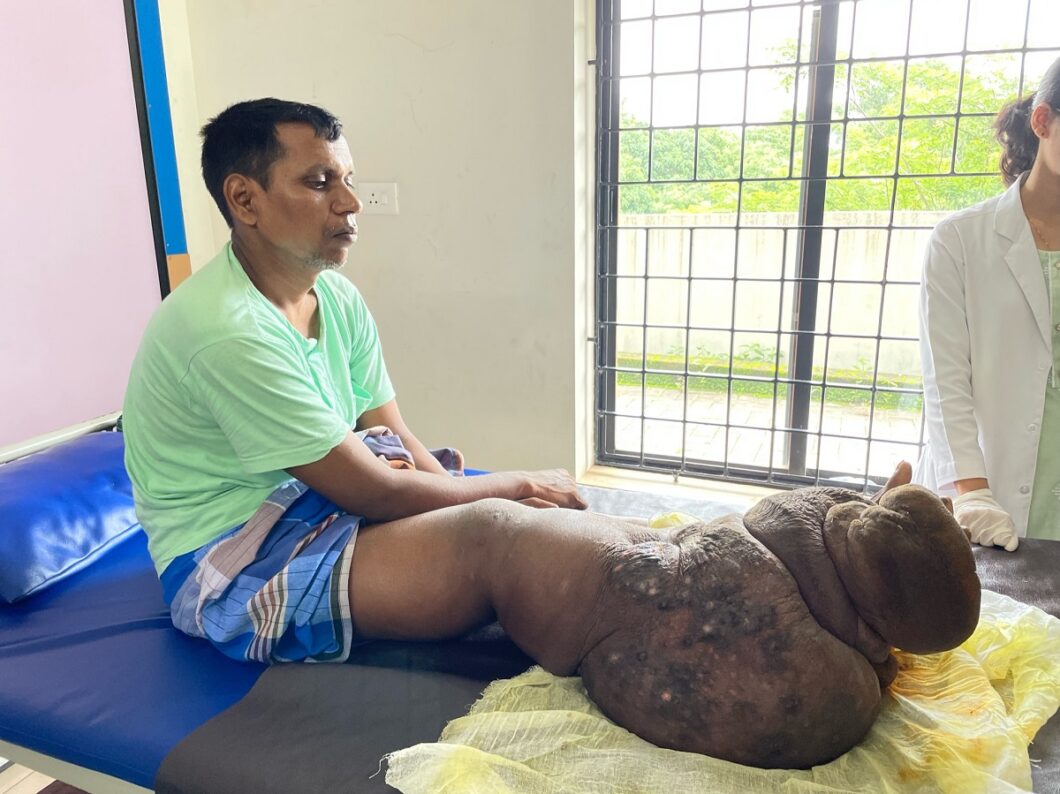
Lymphatic filariasis is a poverty-related disease: serious cases of the disease occur predominantly in the poorer areas of northern India, making it almost impossible for medical staff in these regions to cope. The institute is therefore the last chance of recovery for many people.
“Poor patients can receive treatment at the institute free of charge – but the clinic is desperately reliant on donations of money and materials. The support of medi for help was the only way it was possible to keep the highly qualified staff and continue running the clinic during the COVID-19 pandemic,” explained Carsten Stauf from medi for help. High material costs continue to be a major challenge for the IAD.
Integrative medicine: progressive approaches at the IAD
The IAD specialises in difficult-to-treat skin diseases and lymphatic conditions. Dr S. R. Narahari is Chairman and Director of the IAD and one of the world’s leading lymphoedema experts. His research in lymphology, which combines Ayurveda and yoga treatments with biomedicine, is considered pioneering work in integrative medicine. He was also recently invited to the Traditional Medicine Global Summit of the World Health Organisation (WHO) to speak on the subject of “integrative medicine as a public health measure for lymphoedema caused by filariae”.
The specialists at the institute follow this holistic therapeutic approach: they combine (integrate) traditional Indian medicine, such as Ayurveda and yoga, with nutrition and modern medicine. They also strive to raise awareness of health in the local community. The team at the IAD also provides training for family members on how to self-treat patients with lymphoedema and chronic wounds at home – using low-cost and locally available materials. The Institute works in a resource-poor environment, disconnected from the academic world and extensive modern medical facilities. Both the institute and medi benefit from this exchange.
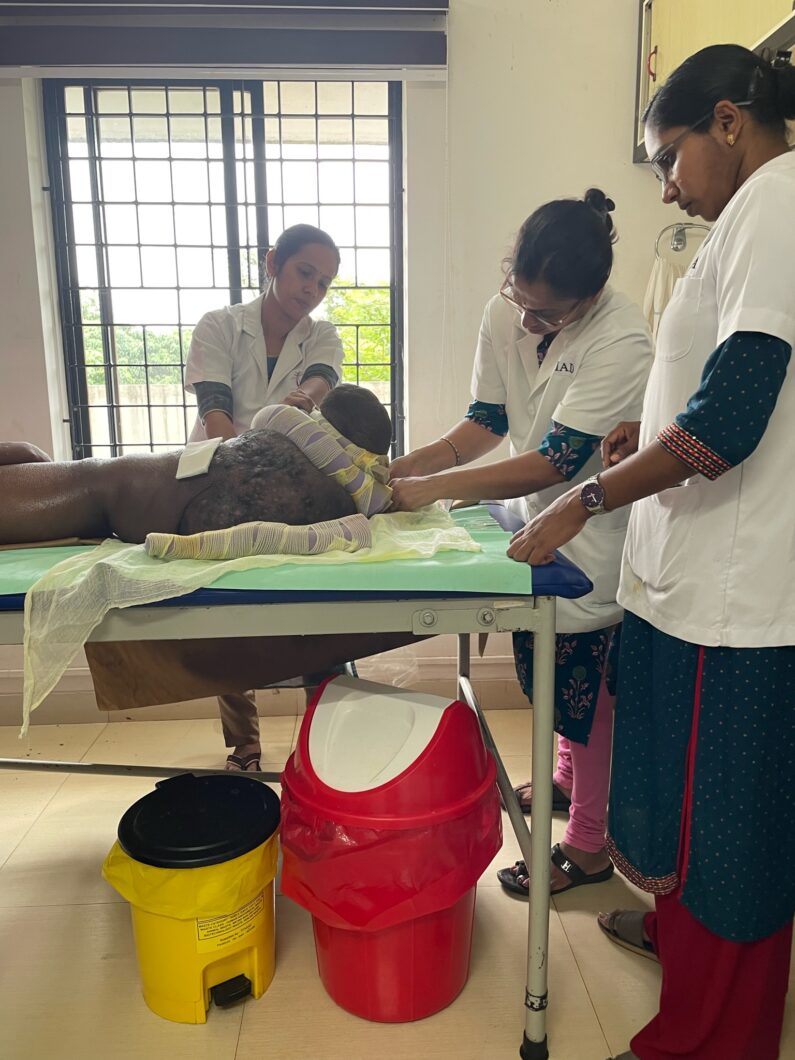
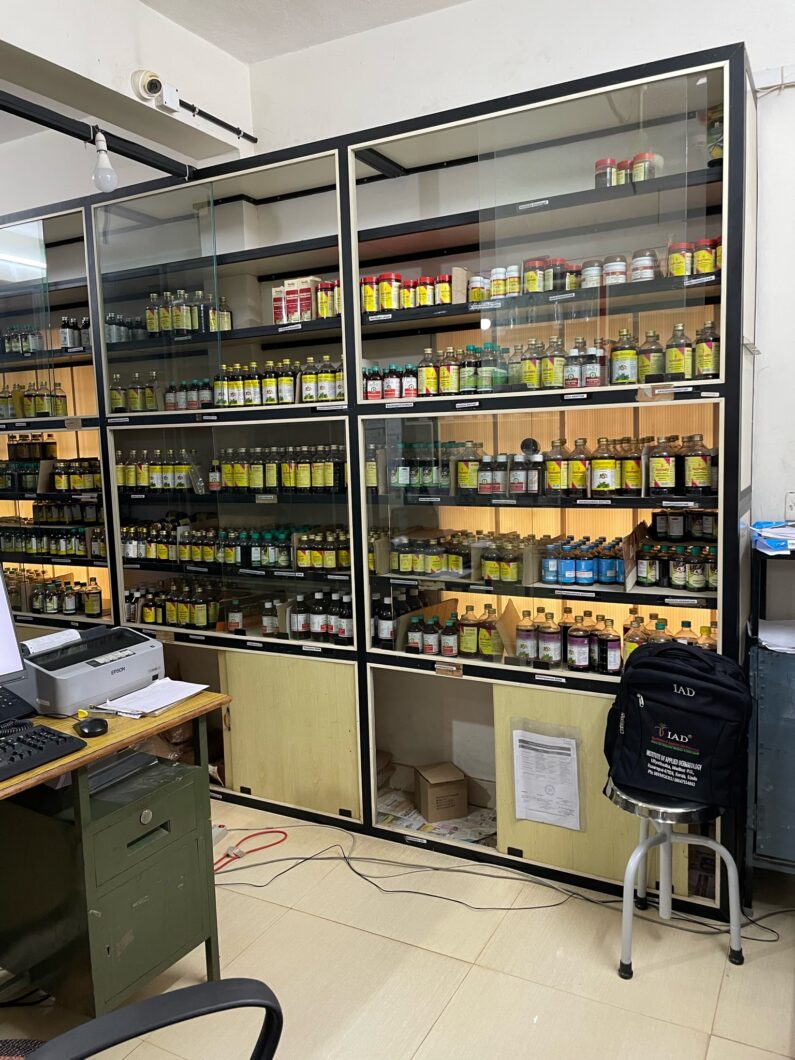
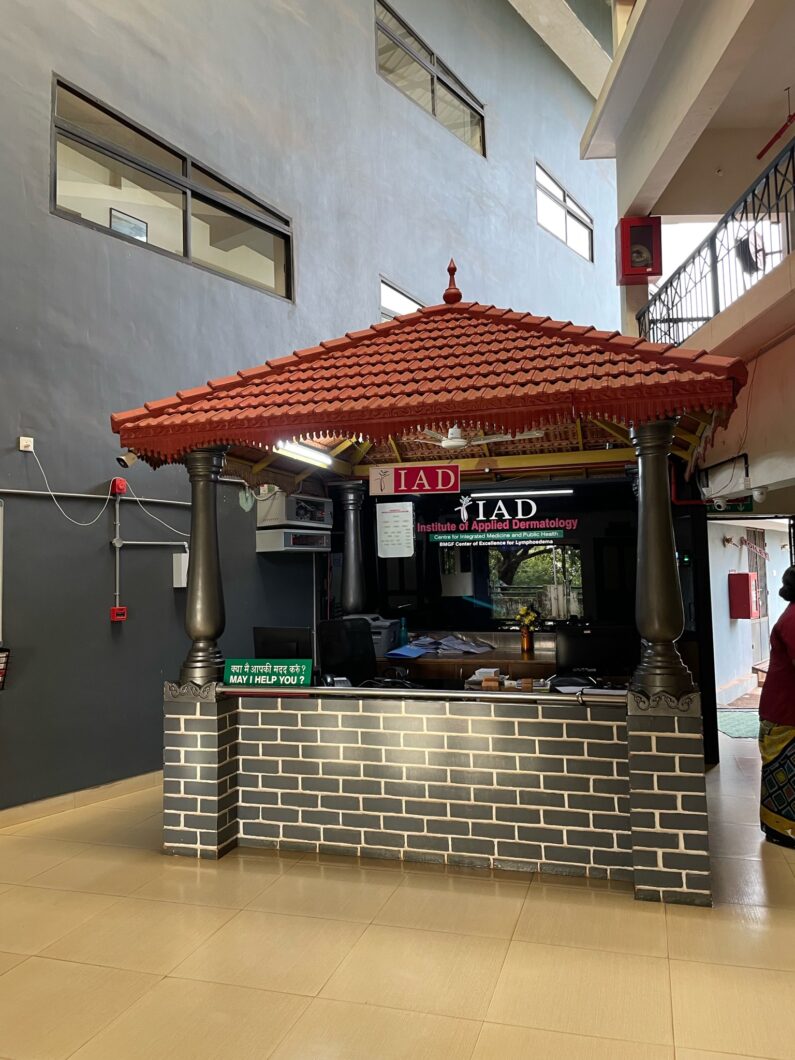
Help with circaid compression systems from medi
medi for help has been supporting the IAD with medical adaptive compression systems (MAC) such as the circaid reduction kit and circaid juxtafit from the outset of the collaboration. medi’s MACs have the benefit that the compression pressure can be specifically set, controlled and readjusted at any time. This means that a large number of people suffering from varying degrees of lymphoedema can be effectively helped. The easy-to-use circaid products also allow patients to put on and take off the compression systems themselves in their everyday lives.
During her visit to Kasaragod, Daniela Weihermüller delivered more circaid systems to Dr S. R. Narahari and learned about the treatment options available.

She was able to see for herself how medi for help can support decongestion and conservation therapy with its “compression” expertise and circaid products:
“Among other things, we had the opportunity to speak to a patient already using circaid. After her treatment at the IAD, she showed us how easy it was for her to put on her compression system herself. She said that this independence in everyday life was particularly important to her.
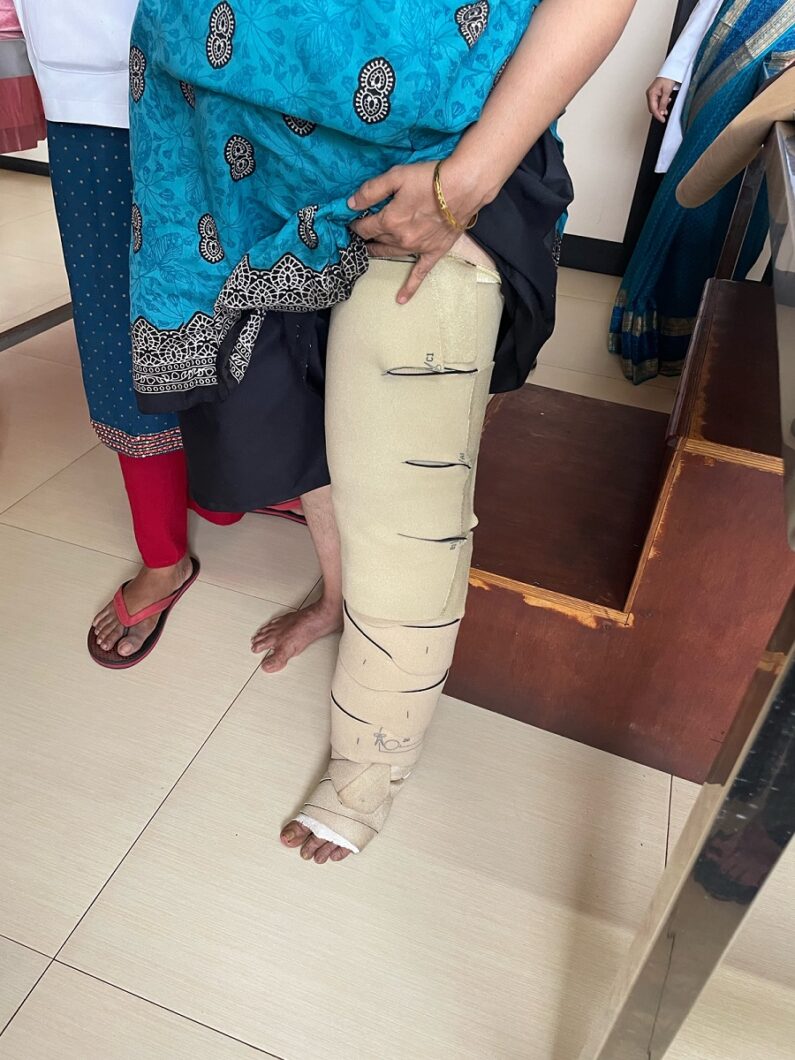
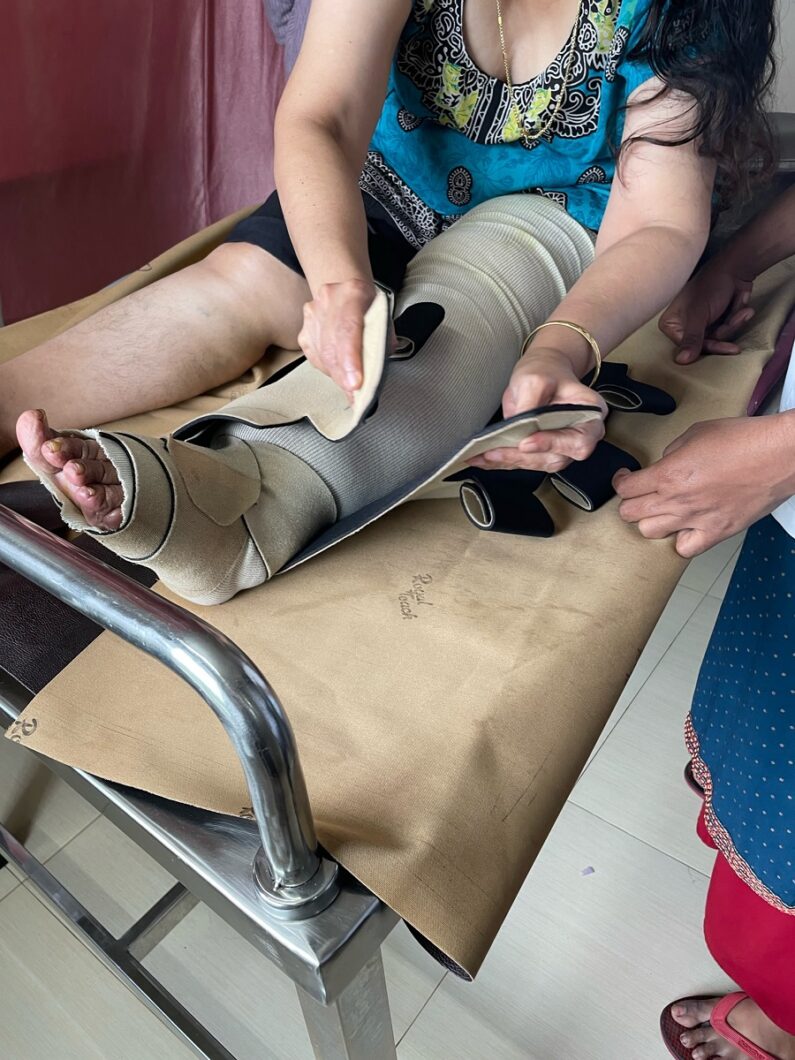
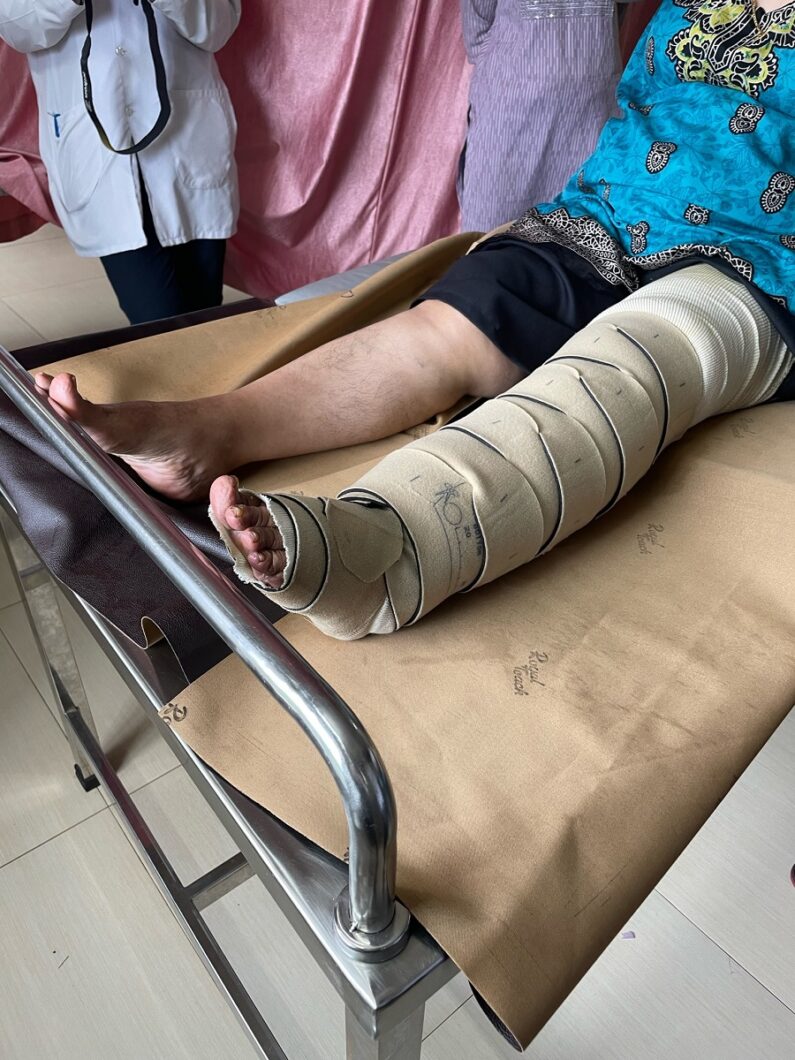
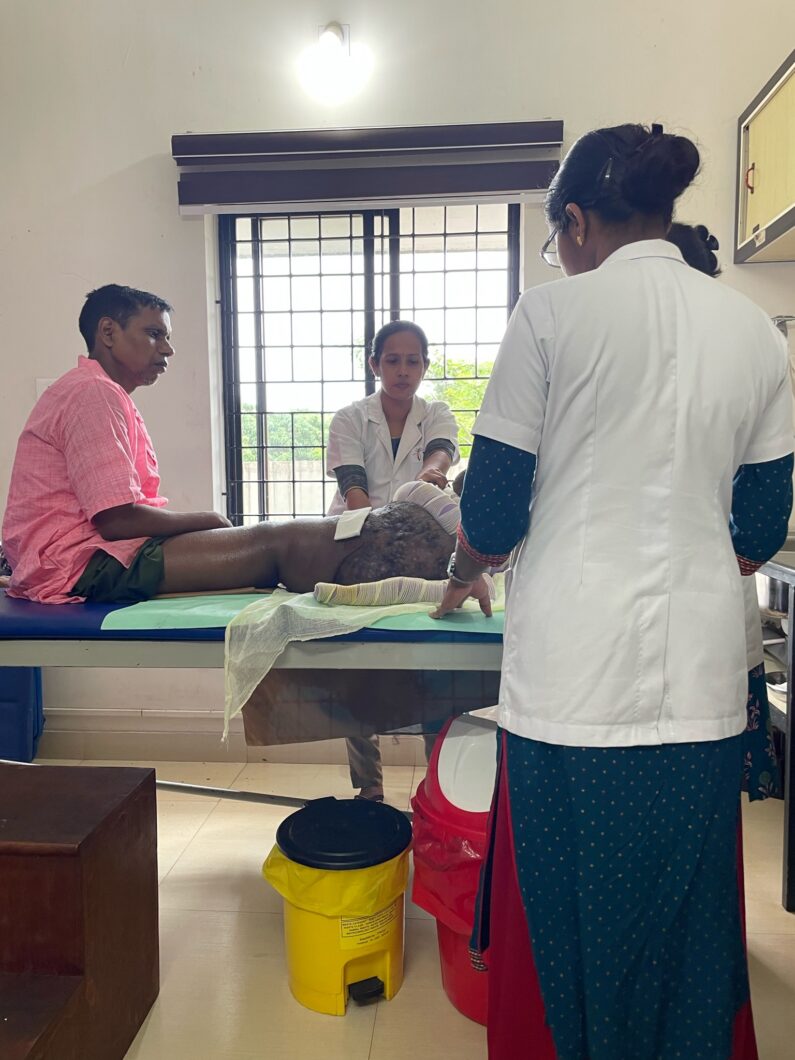
Another patient travelled for three days to be treated at the IAD after twelve years of oedema. The team at the institute first treated his severe oedema with supports and then, secondly, with circaid systems.”
The man is a security guard at a school, where money was raised for him to make the journey.
“It was very moving to see how life-changing a visit and free treatment at the IAD is for people. The institute is fully committed to patients – our help really does make a difference here!” emphasised Daniela Weihermüller. Thanks to medi for help’s support, more patients will be able to receive lasting help.
Sources:
1 https://iad.org.in/
2 https://dntds.de/was-sind-ntds.html (Last access: 12.09.2023)